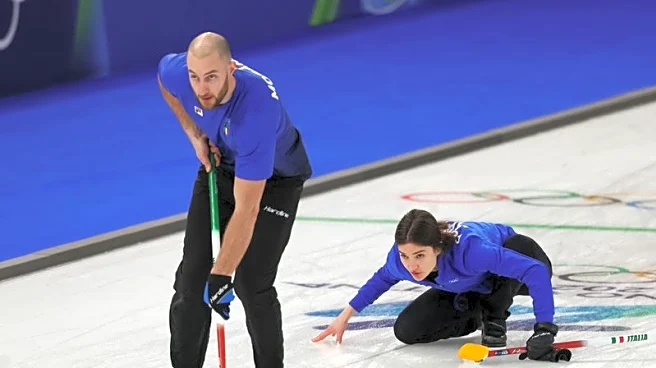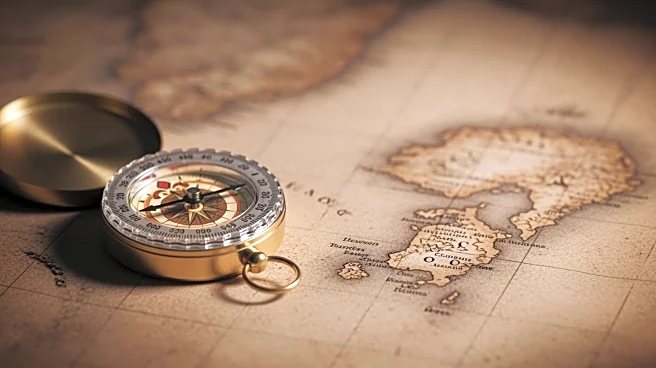What's Happening?
Walla, an Israeli news outlet, is set to feature a special project on October 7, highlighting the personal experiences of survivors from Gaza captivity. The project will include columns from individuals such as Mia Schem, Louis Har, Emily Damari, Omer Shem Tov, and Doron Steinbrecher, who will share their deeply personal stories about their time in Gaza. This initiative comes in the wake of the destruction caused by Hamas terrorists during the October 7 massacre at Kibbutz Nir Oz, near the Israeli-Gaza border. The project aims to provide a platform for these survivors to voice their experiences and the impact of the events on their lives.
Why It's Important?
The project is significant as it sheds light on the human impact of the conflict between Israel and Hamas, particularly focusing on the experiences of those who have survived captivity. By sharing these personal narratives, the initiative seeks to foster understanding and empathy among the public, highlighting the psychological and emotional toll of such experiences. It also serves as a reminder of the ongoing tensions in the region and the need for dialogue and resolution. The stories of these survivors could influence public opinion and policy discussions regarding the conflict and its resolution.
What's Next?
The release of these personal accounts may prompt further discussions and actions from various stakeholders, including political leaders, human rights organizations, and the international community. There could be increased calls for humanitarian aid and support for those affected by the conflict, as well as renewed efforts to address the underlying issues that contribute to such violence. The project may also inspire similar initiatives aimed at amplifying the voices of those impacted by conflict, potentially leading to broader awareness and advocacy efforts.
Beyond the Headlines
Beyond the immediate impact, the project could contribute to long-term shifts in how the public perceives the conflict and its human consequences. It may also raise ethical questions about the treatment of captives and the responsibilities of governments and organizations in protecting human rights. The narratives could serve as powerful testimonies in legal and cultural discussions about accountability and justice in conflict situations.










